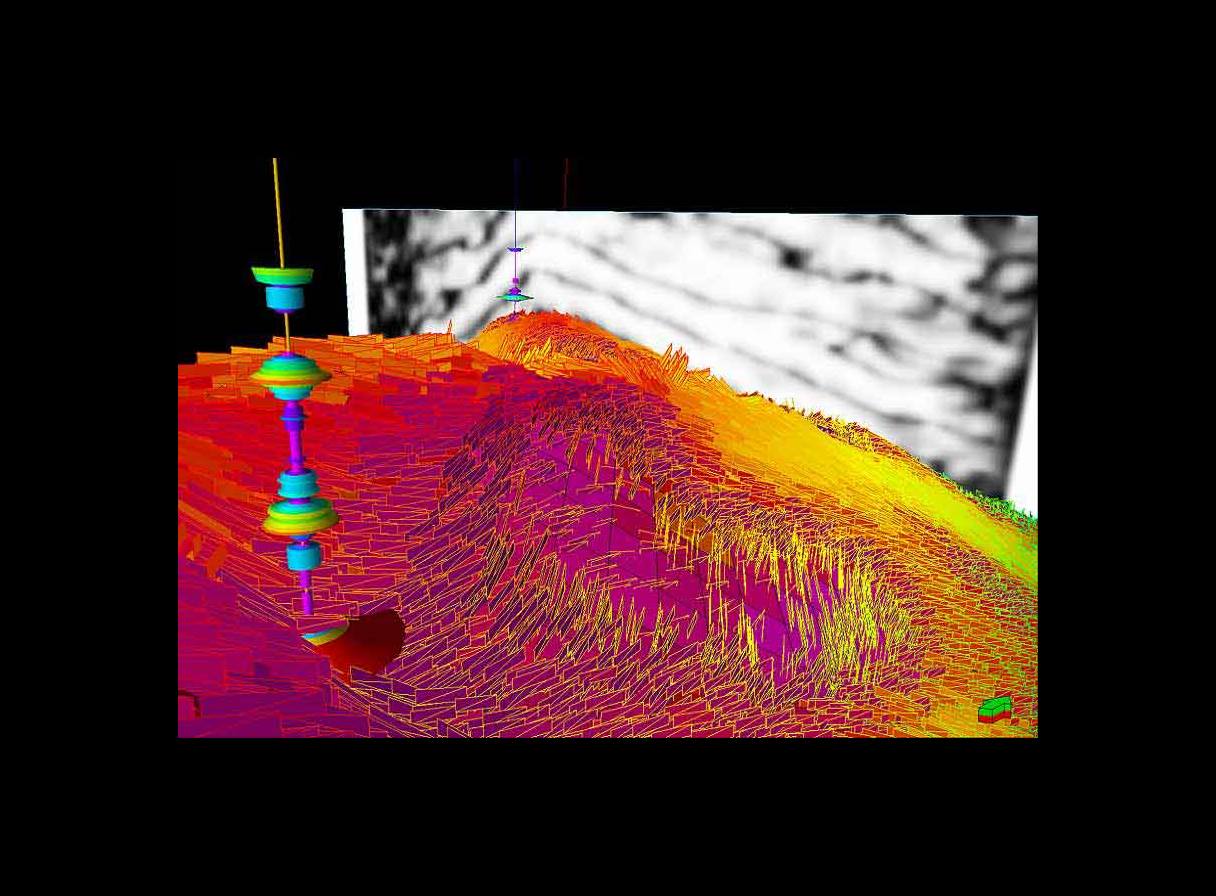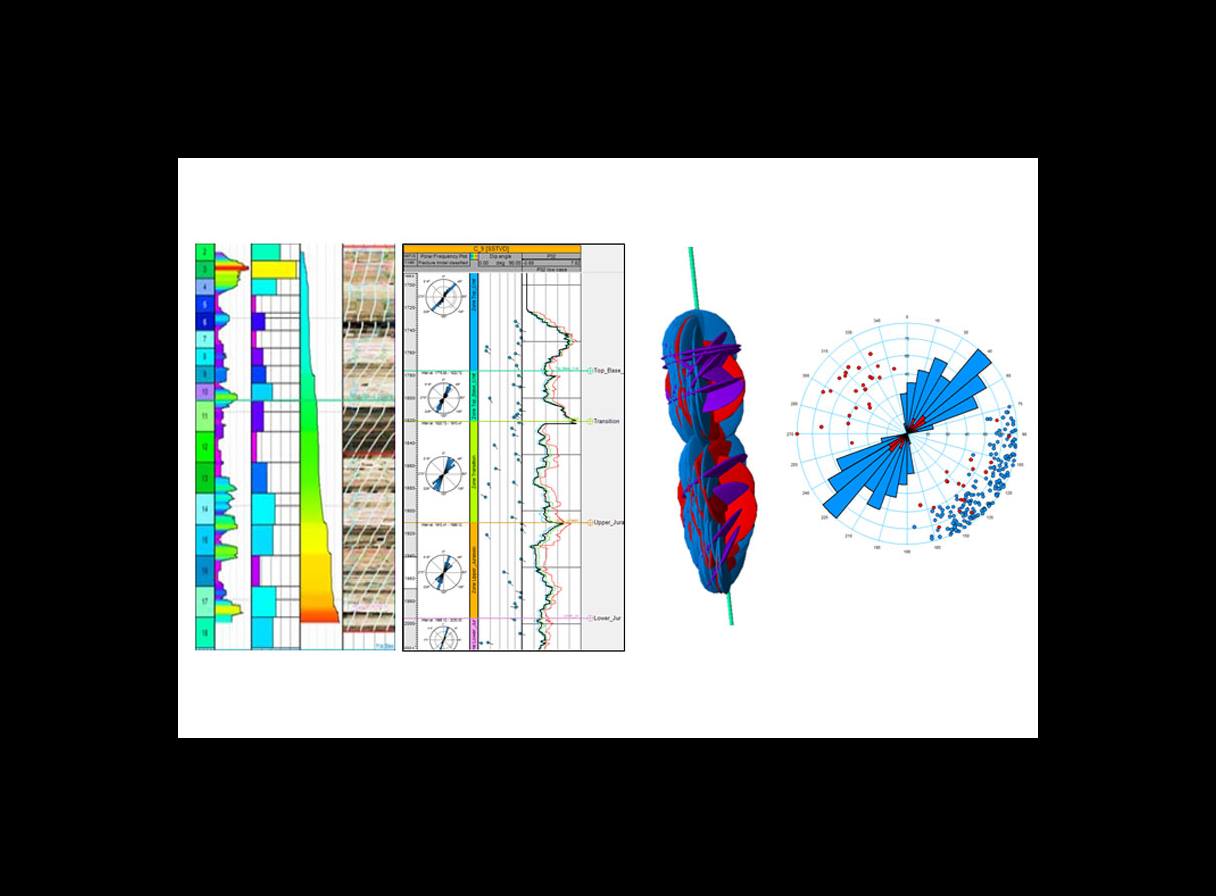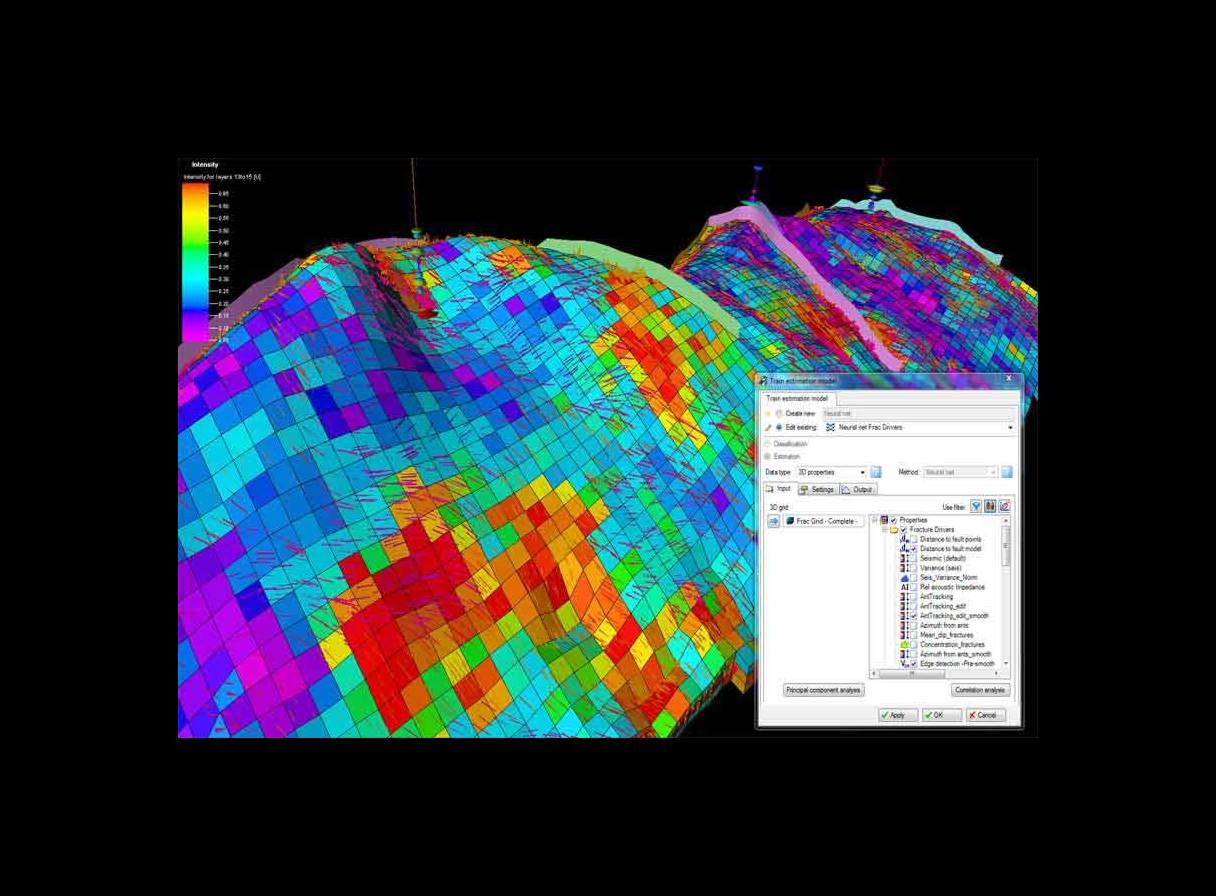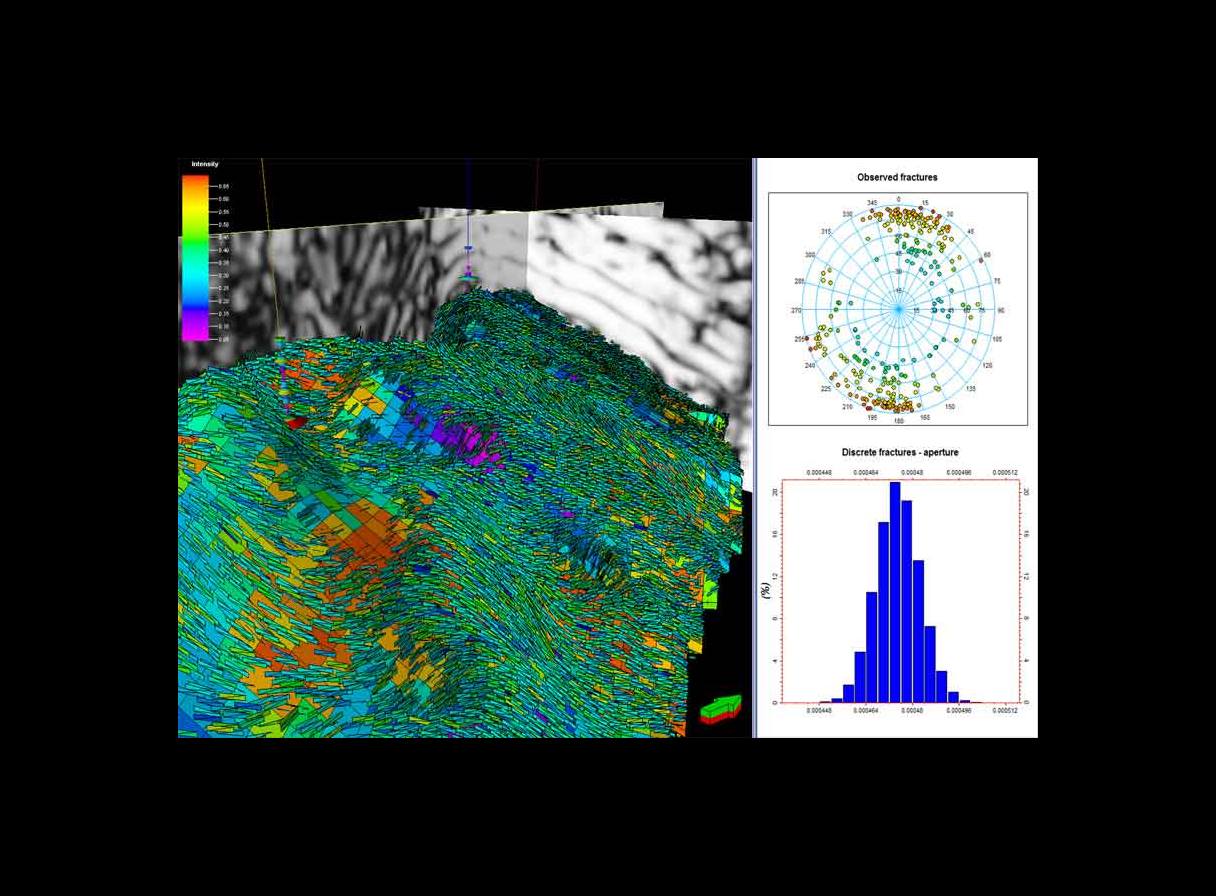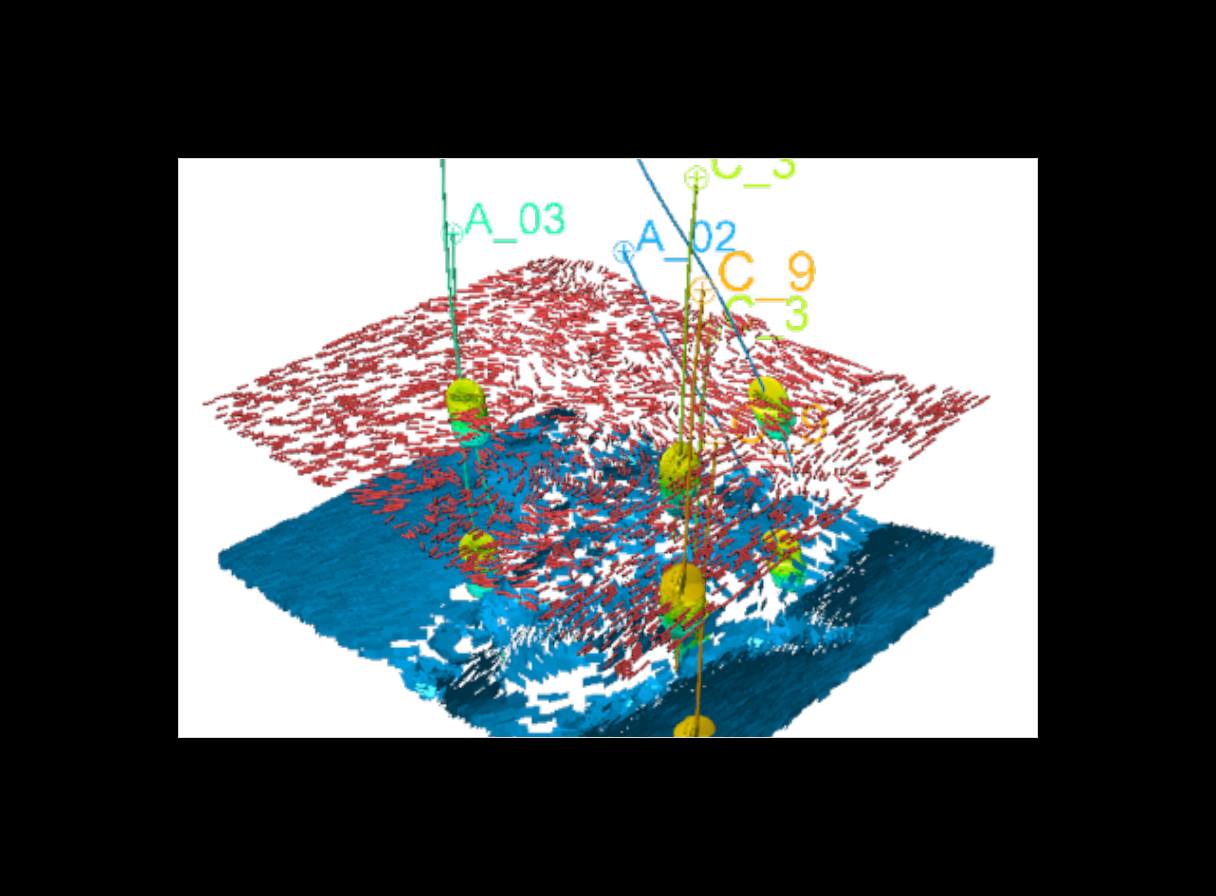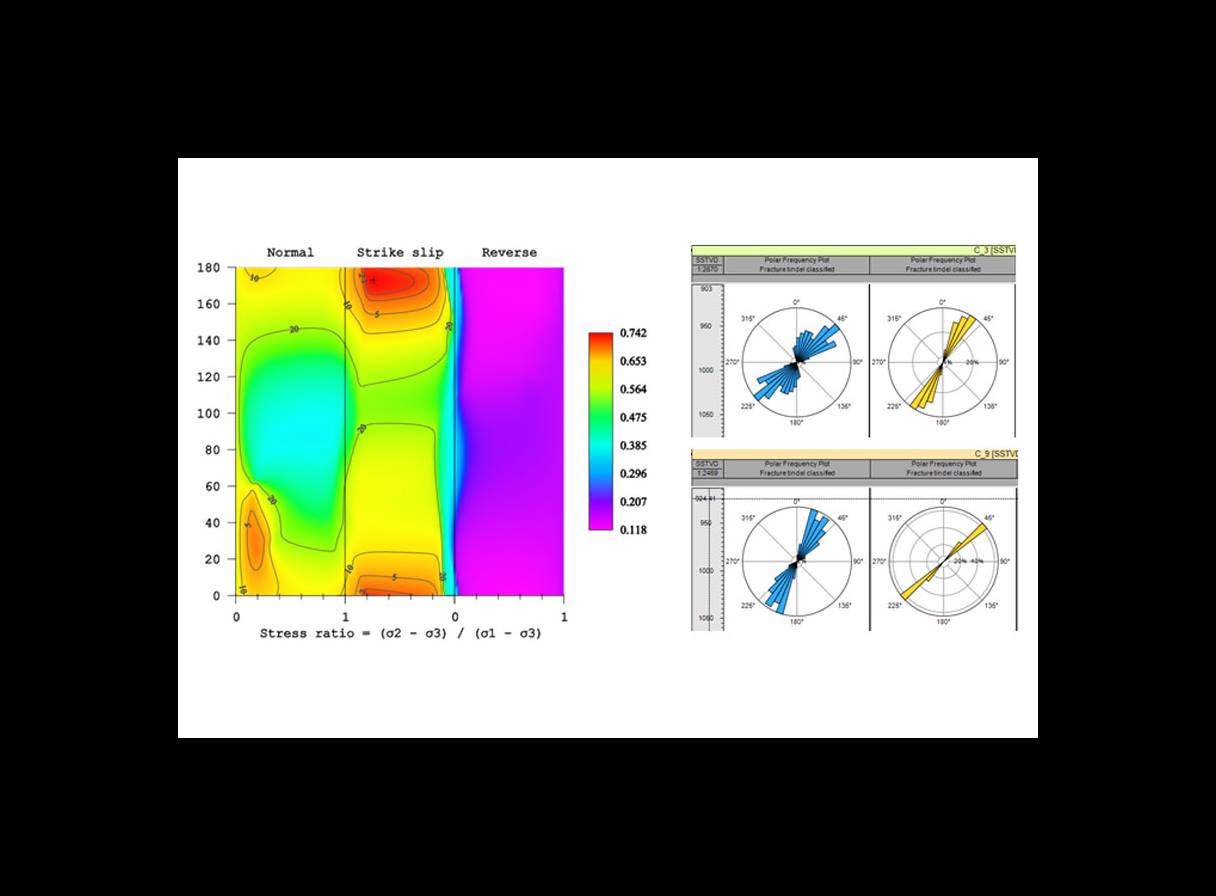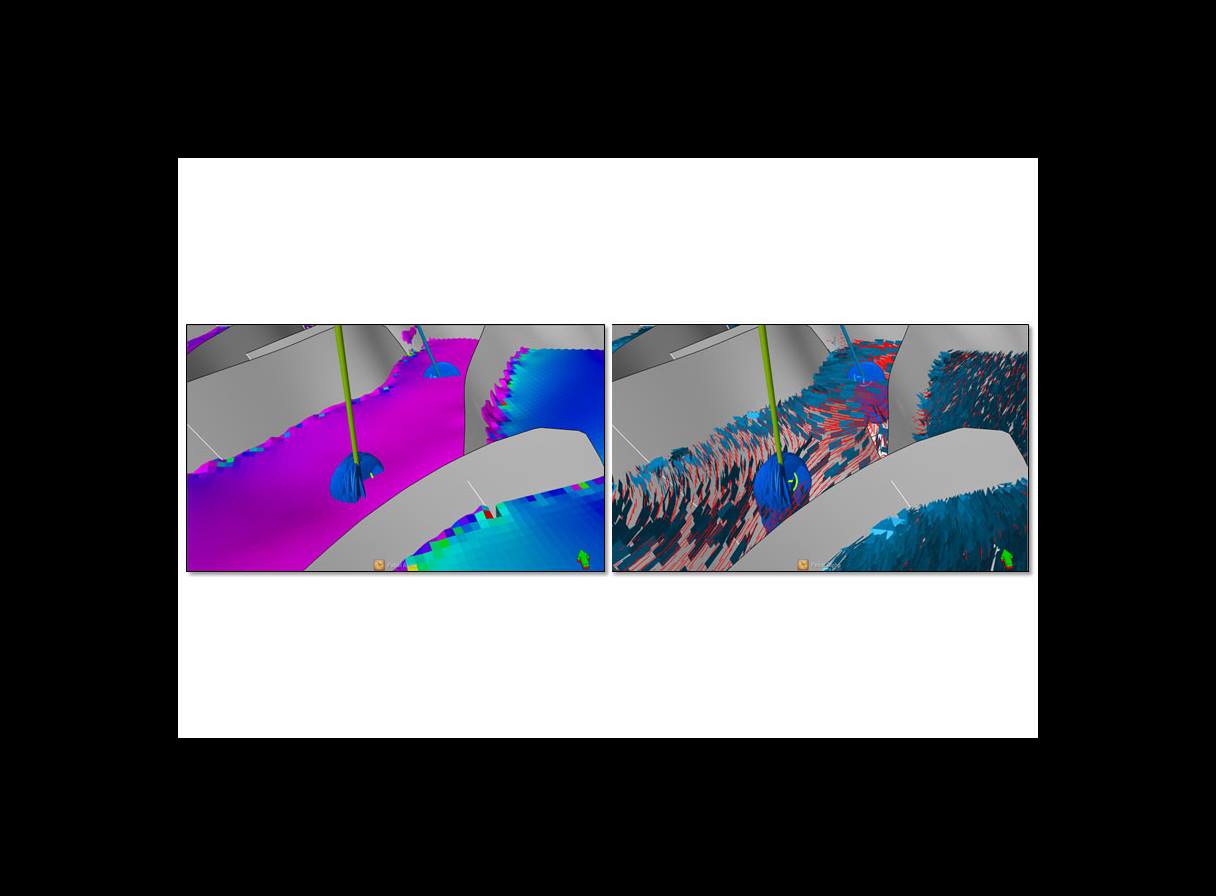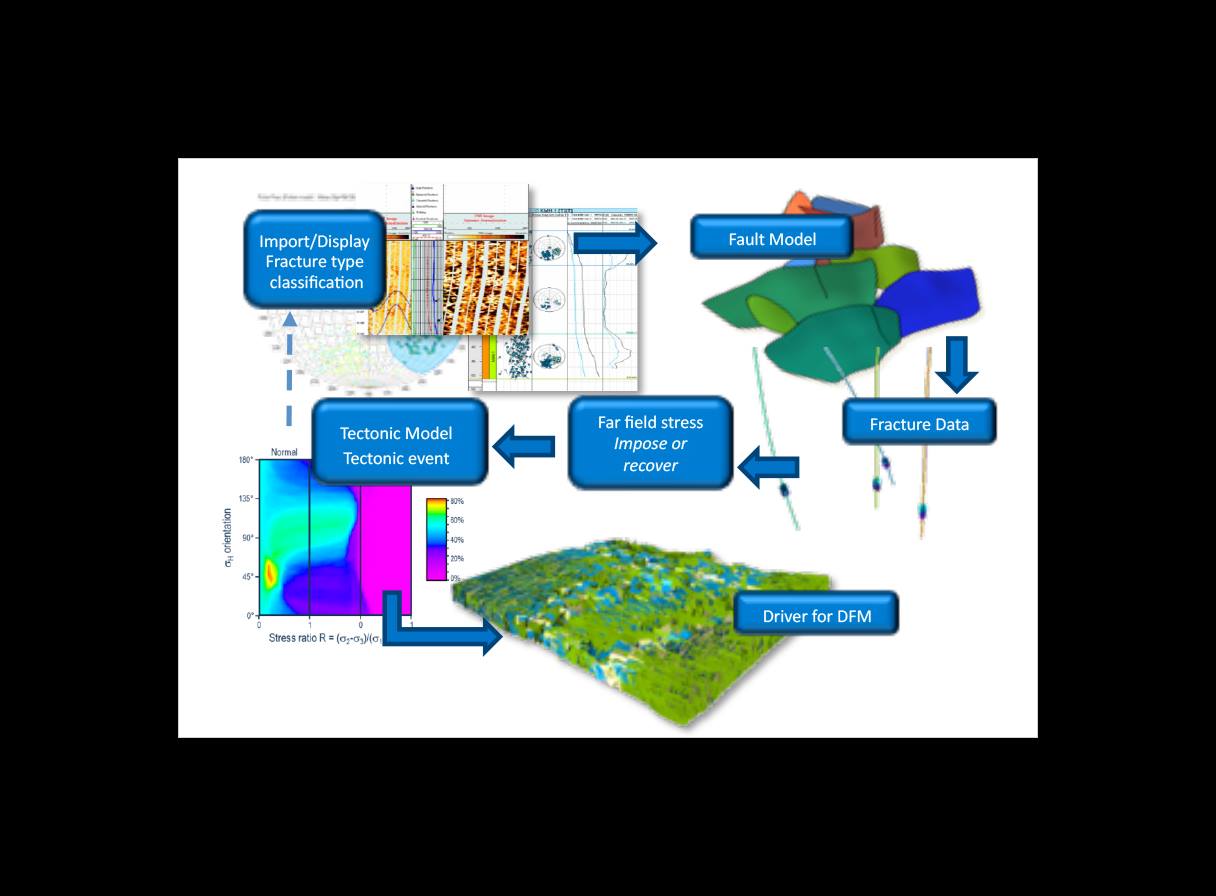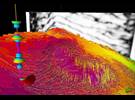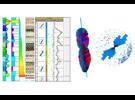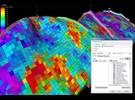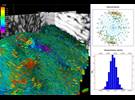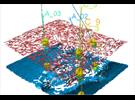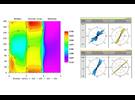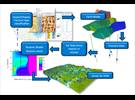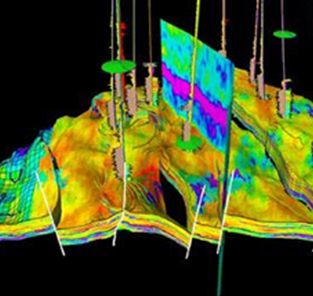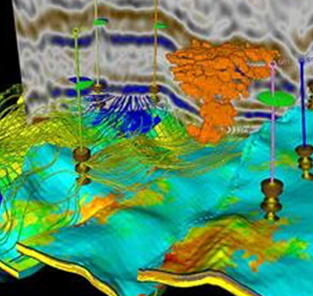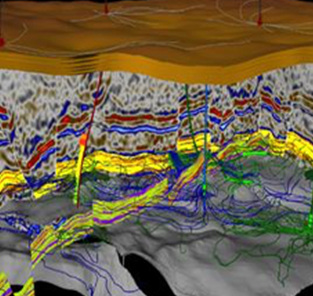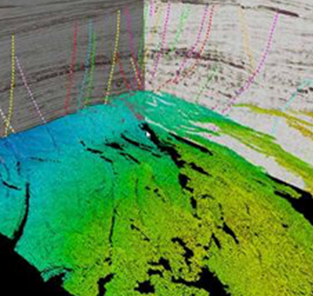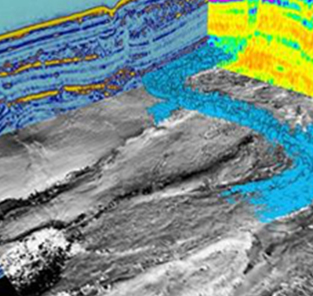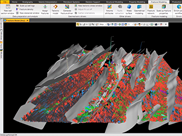Petrel fracture modeling provides full flexibility for both stochastic and geomechanical fracture characterization using either stochastic or deterministic methods. Fractures can be modeled as either discrete or implicit fractures or as a combination of both. Additionally, a geomechanics-based method models the perturbed stress field directly linked to the active faults, under applied tectonic stresses. The tectonic stresses through geological time can be obtained from an inversion using the fracture data and the fault model or, alternatively, can be imposed directly. This makes it possible to extract geometrical characteristics of potential natural fractures developed inside the perturbed stress field. Calibration is applied with observed fractures along wells to provide a calibrated computed density of the fractures.
Fracture models can be distributed and upscaled to 3D grids for simulation where advanced permeability upscaling options are available, including Oda and flow-based methods. The Petrel fracture modeling workflow enables full integration with the Eclipse industry-reference reservoir simulator and Intersect high-resolution reservoir simulator using multiple porosity models for advanced simulation of naturally fractured reservoirs.
Features
- Import, QC, and display fracture interpretations using the well section and stereonet windows
- Use dip and azimuth interpretation from image log data, together with fault patches from ant tracking and other discrete fracture networks
- Characterize fractures using either stochastic or deterministic methods
- Represent fractures as either discrete planes or implicit properties or as a combination of both
- Calibrate the interpretation to observed fracture data
- Upscale the fracture network directly into the geocellular model
- Upscale permeability based on the Oda method
